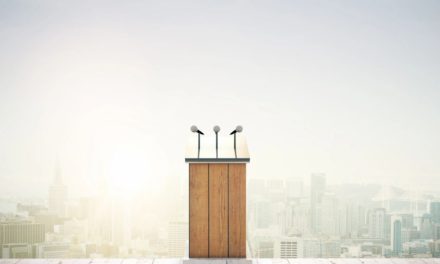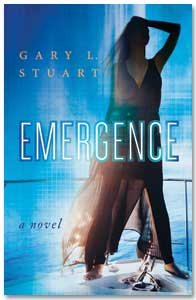What are the ethics of fighting or dodging the COVID-19 pandemic? This blog will be a little longer because Stay-at-Home orders are being written by government people—state governors. It is complicated by reciprocal orders —Go-Out-And-Spend. It would be even longer if I went global and included all the governors, presidents, prime ministers, kings, provincial governors, emirs, sultans, tyrants, and tycoons on the planet who wrote Stay-At-Home, or Go-Out-And-Spend orders in Africa, America, Asia, Europe, and Oceania in Spring 2020. But let’s stick to the lower forty-eight, Hawaii, Alaska, and the US lesser districts and territories.
One thing we know for sure: COVID-19 plays favorites. It likes ill-prepared populations. It shuns well-prepared ones.
Seven states decided not to issue stay-at-home orders.[1] Others issued an authoritative statement ranging from you must, to you should, to please, just do it. The federal government commented frequently but did not make the people in the White House stay at home. It was not coordinated, tagged, meshed, or consistent. The effort was tepid or red-hot; either stop the spread or wall it off. As is always the case, the politics of these orders neutered their effectiveness. Some states or political subdivisions within states had partial orders in place, issued locally by cities or counties. Unlike world wars or other worldwide calamities, there was, at first, no attempt to lead by leading. Politically, it was a socio-economic attempt to shift either blame, responsibility, or both.
While the orders were “signed” by governors, mayors, county officials, tribal leaders, and others with the power of the pen, none actually “wrote” the orders. They have people for that. We should all be thankful. Can you imagine what the orders would have looked like had they actually been penned by high-ranking political officers? All of them, from whatever source and however transmitted were “writs.” In case you’re forgotten, a writ is a formal written order issued by a body with administrative or judicial jurisdiction, usually a court. But in pandemics, other government institutions become virtual writ machines. Like writs of absolution, certiorari and execution, a writ to stay at home or go out and spend comes from an authority. Writs highlight the power to enforce compliance or submission. And unless you actually have “the” authority, a writ is a dubious show of assumed authority and either ignored, laughed at, or cheerfully disobeyed. In the vernacular, take your writ and shove it.
The ethical challenge to writing a writ begins with both its purpose and the expected outcome. As of May 2020, the raging COVID-19 pandemic was killing people in the US at 2,032 per day, with an expected death toll of 137,184 by August 4, 2020.[2] By May 2020, those states with stay-at-home orders in place were inching toward go-out-and-spend orders. This is the point where the ethics of the thing evolve. Is the stay-at-home order or the go-out-and-spend order based on scientific data connecting community spread to continuing death? Or is it based on the need to jumpstart a shuttered economy? Or is it political recognition that 2020 is a presidential election year? The ethics of all three depend on motivation.
If the initial order or its modification is based on widely-accepted scientific data, then it is ethically sound. If it’s based on the raw power to issue the order, without wide concurrence in the scientific and healthcare community, then it’s ethically dubious. If it’s based on the desperate need to win a second term, it’s unethical.
A late April 2020 poll reported, “Nearly 60 percent of American voters say they are more concerned that relaxing stay-at-home restrictions would lead to more COVID-19 deaths than they are that the restrictions will hurt the U.S. economy.”[3] Politics in America make a difference in every aspect of public health, welfare and death. The poll confirmed that strong majorities of Democrats and independents were “…more worried about the coronavirus than the economy. Republicans are divided on the question, with almost half of them more concerned about how the restrictions could affect the economy.”[4]
Ethics and politics must be seen in context because there is always a dangerously close connection. If the ethics of a decision or plan of action are problematic, the political call for action prevails. Ethics can wait. Politics cannot. That’s inherent in the nature of political decision making—in both American major parties. Ethics is a dimension inseparable from the daily lives of every citizen. So is politics. The ethical dimension pervades all human actions, but not all political ones. One is driven by human values, the other by party values. More than anything else, this explains why Republicans are divided on whether to bolster the economy or protect the people. Doing both simultaneously is a political tightrope few leaders are balanced enough to walk. It also explains why independents are more worried about public health than they are about economic health. Democrats are out of national power. Their political future may depend on how Independents see their politics. That explains why only Republican governors declined to order anyone to stay at home. They fear the economic consequences more than the health consequences.
Fear is an ethical construct because it is a powerful emotion. When people are afraid, they react. If they fear economic harm more than they fear catching the dreaded COVID-19 disease, they react politically rather than morally. Conversely, fear of death is widely assumed to be more powerful than the fear of losing a job. At this point, emotional fear often overtakes rational decision-making. Some confident in their own health safety may ignore the risk to others if it means significant harm to their economic safety. That’s not party politics; that’s human reaction.
The ethical question becomes whether one political party or the other plays to the fear of actual death. or the fear of certain economic harm. That turns ethics on its head and makes fear the motivator. Politicians model fear just as they model elections. Elections can be won by pushing economic health over public health. Conversely, they can be lost if saving lives is seen as more important than economic harm. The election itself might explain why stay at home orders were issued in some states, while others whipped out go-out-and-spend orders. The electoral college is neither ethical nor unethical. It is just political.
 I am an author and a part-time lawyer with a focus on ethics and professional discipline. I teach creative writing and ethics to law students at Arizona State University. Read my bio.
I am an author and a part-time lawyer with a focus on ethics and professional discipline. I teach creative writing and ethics to law students at Arizona State University. Read my bio.
If you have an important story you want told, you can commission me to write it for you. Learn how.
[1] Wyoming, Utah, South Dakota, North Dakota, Nebraska, Iowa, and Arkansas.
[2]https://covid19.healthdata.org/united-states-of-america
[3] https://www.nbcnews.com/politics/meet-the-press/poll-six-10-support-keeping-stay-home-restrictions-fight-coronavirus-n1187011
[4] Ibid.






 I am an author and a part-time lawyer with a focus on ethics and professional discipline. I teach creative writing and ethics to law students at Arizona State University.
I am an author and a part-time lawyer with a focus on ethics and professional discipline. I teach creative writing and ethics to law students at Arizona State University.  My latest novel is Emergence, the sequel to Let’s Disappear.
My latest novel is Emergence, the sequel to Let’s Disappear.  If you have an important story you want told, you can commission me to write it for you.
If you have an important story you want told, you can commission me to write it for you.